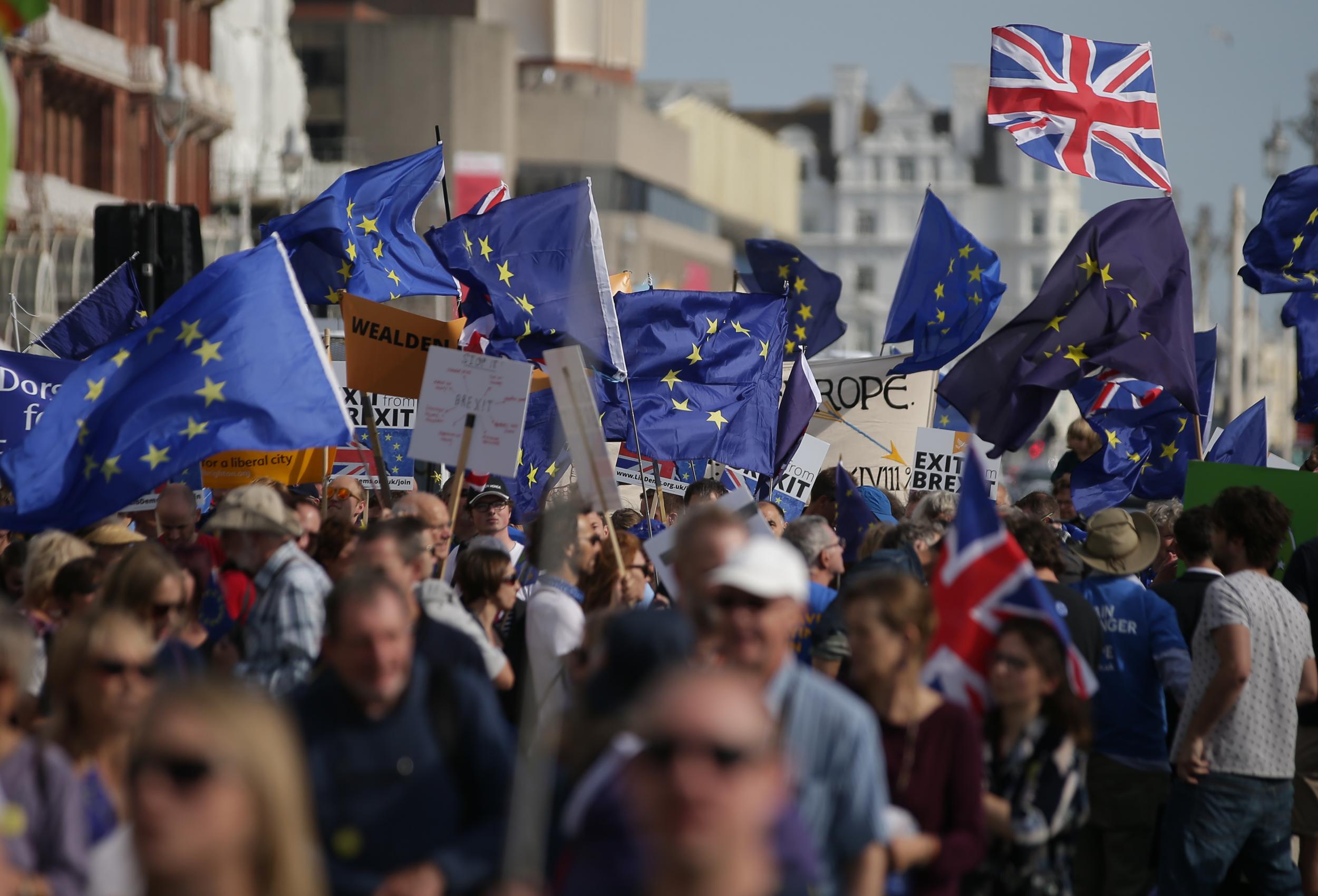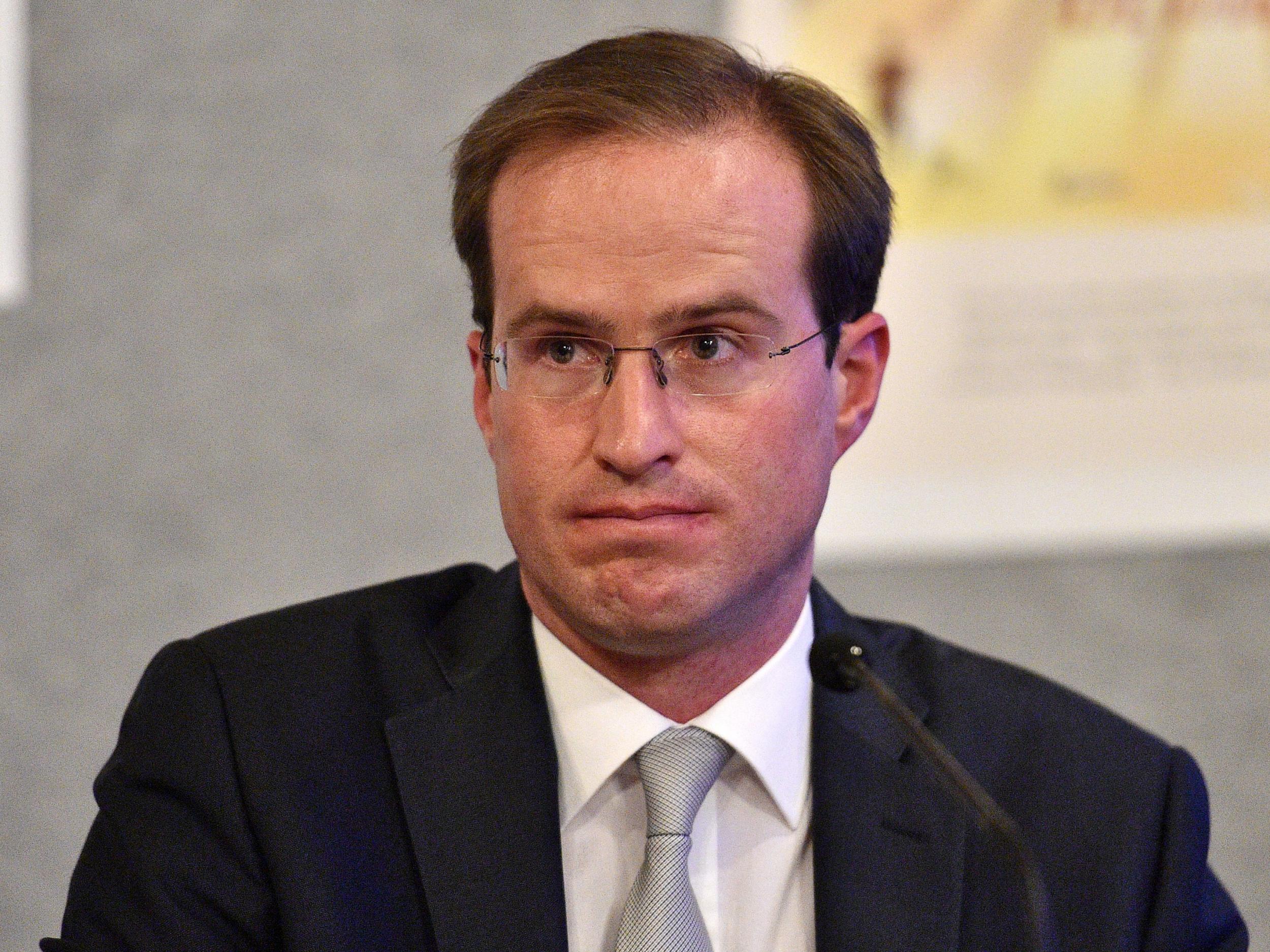Brexit: Britons now back Remain over Leave by 10 points, exclusive poll shows
Exclusive: The newly published survey gives Remainers their biggest lead since the 2016 referendum

Your support helps us to tell the story
From reproductive rights to climate change to Big Tech, The Independent is on the ground when the story is developing. Whether it's investigating the financials of Elon Musk's pro-Trump PAC or producing our latest documentary, 'The A Word', which shines a light on the American women fighting for reproductive rights, we know how important it is to parse out the facts from the messaging.
At such a critical moment in US history, we need reporters on the ground. Your donation allows us to keep sending journalists to speak to both sides of the story.
The Independent is trusted by Americans across the entire political spectrum. And unlike many other quality news outlets, we choose not to lock Americans out of our reporting and analysis with paywalls. We believe quality journalism should be available to everyone, paid for by those who can afford it.
Your support makes all the difference.The British public has swung behind staying in the EU by its largest margin since the referendum, with those backing Remain outstripping Leavers by ten points, a new poll has revealed.
The exclusive survey for The Independent by BMG Research showed 51 per cent now back remaining in the union, while 41 per cent want Brexit.
Once “don’t knows” were encouraged to choose one way or the other, or excluded, the Remain lead rises to 11 points. Either way, it is the biggest gap since the June 2016 vote.
It comes as leading political figures write in The Independent tomorrow about whether the country needs a further referendum to decide on Brexit, once terms of departure are known.
Michael Heseltine, Peter Mandelson, Gina Miller and Vince Cable call for a rethink, while Leave campaign mastermind Matthew Elliott and Conservatives James Cleverly and Suella Fernandes demand Brexit is seen through.
Last week again underlined the difficulties of withdrawal, after the EU set out terms for a Brexit transition period that will likely be unacceptable to leading Conservative Eurosceptics.
Theresa May also suffered a damaging defeat in the Commons while trying to pass her key piece of Brexit legislation, before being forced to make a major concession to avoid further embarrassment next week.
Amid the furore, the latest poll indicates British voters have slowly but steadily been turning their backs on Brexit.
When a weighted sample of some 1,400 people were asked: “Should the United Kingdom remain a member of the European Union, or leave the European Union?” – 51 per cent backed Remain, and 41 per cent backed Leave.
7 per cent said “don’t know” and 1 per cent refused to answer.
After “don’t knows” were either pushed for an answer or otherwise excluded, 55.5 per cent backed Remain and 44.5 backed Leave.
Polling since this time last year appears to demonstrate a clear trend; Leave enjoyed a lead last December which gradually shrank, before turning into a lead for Remain in the month of the general election, that has since grown.
BMG Research head of polling, Dr Michael Turner, said: “The last time Leave polled ahead of Remain was in February 2017, and since then there has been a slow shift in top-line public opinion in favour of remaining in the EU.
“However, readers should note that digging deeper into the data reveals that this shift has come predominantly from those who did not actually vote in the 2016 referendum, with around nine in ten Leave and Remain voters still unchanged in their view.
“Our polling suggests that about a year ago, those who did not vote in the referendum were broadly split, but today’s poll shows that they are now overwhelmingly in favour of remaining in the EU, by a margin of more than four to one.”
If we are to have control as a nation then we must insist on the democratic right to change our minds
In a special edition of The Independent on Sunday, leading figures in British politics confront the question as to whether it is time to consider a second referendum.
Among the voices is Labour peer Lord Mandelson who says Brexit is not “some natural phenomenon we are consigned to live with”, before adding: “If we are to have control as a nation then we must insist on the democratic right to change our minds.”
Liberal Democrat Leader Mr Cable predicts the Government may need a referendum to help it avoid the political damage of a bad Brexit, while Ms Miller tells how another public vote may be a legal necessity.

Amid ongoing Tory divisions on Europe, ex-cabinet minister Lord Heseltine backs the integrity of MPs trying to reshape Ms May’s plans, while claiming hard-Brexiteers had “betrayed the achievements of Conservative governments from the 1950s onwards”.
But Matthew Elliott hits back at people promoting a further referendum, saying: “Whatever their high-sounding motives, this is nothing more than a shoddy plot to reverse Brexit.”
Reversing Brexit now would be deeply divisive, fundamentally undemocratic and destroy the trust of the British people
Rising star Tory MP Ms Fernandes says any attempt to go back on withdrawal would be “deeply divisive, fundamentally undemocratic and destroy the trust of the British people”, while Mr Cleverly argues that “the best chance for a good outcome would be for us all to accept the outcome of the referendum”.
It shows that 18 months on, the fault lines over Brexit run just as deep now as they did in the shocked moments following the 2016 result.
Ms May won a temporary reprieve from conflict with soft-Brexit supporting backbenchers this week, after agreeing to back down over her plan to rigidly enshrine the date of withdrawal in law.
But on Saturday, Chancellor Philip Hammond said that the kind of transition period the UK would seek after Brexit would maintain the status quo. This suggests where the next internal battle will lie, given that the stance is likely to be unacceptable to many hard Brexiteers.
The new European Council guidelines to negotiators show that during a transition period, the EU wants the UK to implement all new rules created by the European Commission, without any say in drawing them up.
The guidelines also require the UK to stay in the customs union and single market, maintain free movement and remain under the jurisdiction of the European Court.
Meanwhile, there will be no full trade talks between the two sides until next March and the UK will not be able to sign other trade deals until after the transition period has ended, no earlier than 2021.
SOURCE NOTE: BMG Research interviewed a representative sample of 1,509 adults living in Great Britain between 5 and 8 December. Data are weighted. BMG are members of the British Polling Council and abide by their rules. Full details at www.bmgresearch.co.uk/polling
Join our commenting forum
Join thought-provoking conversations, follow other Independent readers and see their replies
0Comments